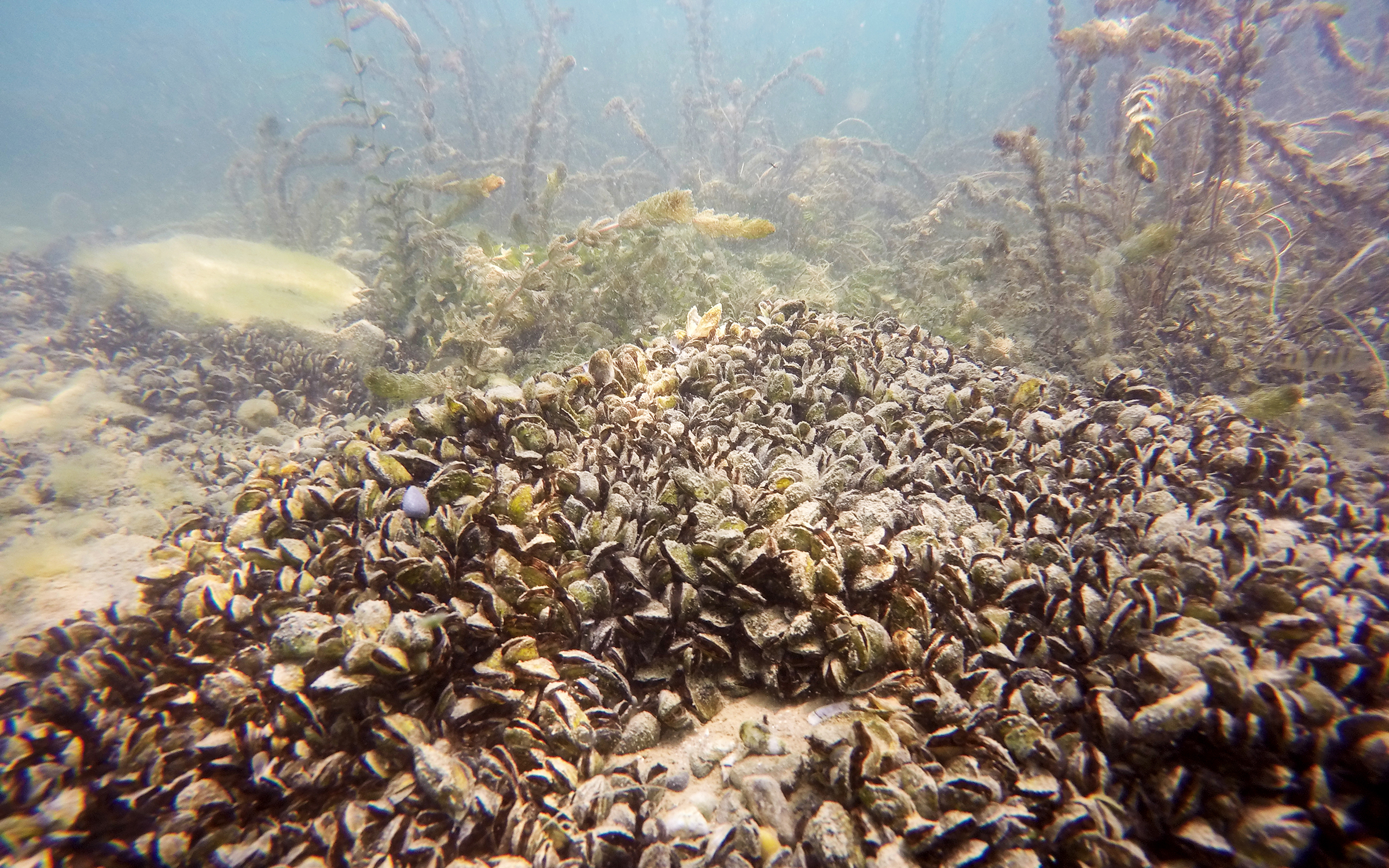
Fish species are disappearing as Swiss lakes warm up
Lake Geneva is warming 4 to 5 times faster than the oceans, climate experts estimate. As a result, emblematic fish species of the great Alpine lake, such as perch, fera or the Arctic char, have become much rarer in recent years. Professional fishermen are slowly watching their livelihoods ebb away.
As temperatures climb in Switzerland, Swiss lakes, fish species and their natural habitat are also suffering. This summer again saw scorching temperatures and in early August the surface water of Lake Geneva was almost 26° degrees Celsius, close to the 27°C record of August 2023, according to the Swiss Federal Institute of Aquatic Science and Technology, EawagExternal link.
Warmer temperatures and climate change seem to be partly to blame for falling fish stocks in Lake Geneva, according to Dorian Baan, a scientist from canton Vaud’s environmental department. He told Swiss public television, RTS: “So-called cold stenotherms, fish which can only withstand a small temperature difference and cool temperatures, are the ones badly affected by global warming.”
According to Franco-Swiss data given to RTS, the drop in fish stocks in Lake Geneva is clear. Catches by professional and amateur fishermen on the lake have fallen dramatically: in 2014, 30 tonnes of Arctic char were caught; today, the figure is less than 10 tonnes. Fera has suffered an even more tragic fate: from 1,000 tonnes in 2014 to 200 tonnes, while trout catches are down from 15 tonnes to less than 10 tonnes.

More
Lake Geneva warming sparks concern
What do they mean by mixing of Swiss lakes?
The problem, say experts, is that the lake water is not mixing and this is affecting fish and other species. Back in 2021, Eawag warned that climate change risked significantly altering water temperature, ice cover and the mixing of many Swiss lakes, and this prediction seems to be coming true.
In many Swiss lakes at medium and high altitudes, the water mixes from the surface to the bottom in spring and fall. Oxygen-rich and nutrient-poor water from the surface mixes with oxygen-depleted and nutrient-rich waters from the deep water.
Eawag pointed out that climate change is deeply interfering with these cycles in Swiss lakes. “How strongly the circulation of lakes reacts to climate change depends in particular on their altitude and size. Especially lakes at mid altitudes are very sensitive,” said Love Råman Vinnå at the Eawag Surface Waters Research Department.
Warming lake hits fishermen
François Liani, a professional fisherman on Lake Geneva, was at the sharp end of these changes this summer. He told RTS: “Today we caught 6-7 kg of perch instead of the 50-60 kg that we should normally have at this time of year. We’re dipping into our financial reserves to pay the bills”.
In this report, we meet other people suffering directly from the effects of Lake Geneva overheating and the scientists examining the phenomenon.
Edited by Reto Gysi von Wartburg

































You can find an overview of ongoing debates with our journalists here . Please join us!
If you want to start a conversation about a topic raised in this article or want to report factual errors, email us at english@swissinfo.ch.